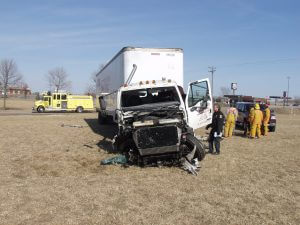AUTO ACCIDENT HIT BY TRUCK MINNESOTA INJURY ATTORNEYS
When a car is hit by a truck in an accident, complicated legal issues arise. Of course, this starts with who was at fault. In other words, which insurance is responsible. Our top truck accident lawyers in MN have handled many crash cases where an auto is hit by a truck. Therefore, we are familiar with the state laws and regulations. In addition, there are federal laws and regulations that apply to trucks driving through Minnesota.
Unfortunately, when a truck causes an accident and hits another vehicle, the damages and injuries are often serious because of the weight of a semi truck.
Our best truck/car accident lawyers know that careful investigation is crucial to these cases. We will work with the MN State Patrol as well as our own investigators to determine why and how the accident happened. Our primary focus is making sure that people injured in a car accident with a truck get fair and complete compensation for their injuries.

In the area below, we have inserted one of the primary laws in Minnesota regarding interstate trucking. However, there are also applicable federal laws and many regulations. When you call us, a semi truck car accident attorney will provide you a free initial consultation. If your car was hit by a semi truck in MN a lawyer will answer your questions and explain your rights. Our primary focus is to make sure you get the compensation you are entitled to.
221.031 INTRASTATE CARRIER;
OPERATING REQUIREMENTS,
EXEMPTIONS.
Subdivision 1. Powers, duties, rules, filings.
(a) This subdivision applies to motor carriers engaged in intrastate commerce.
(b) The commissioner shall prescribe rules for the operation of motor carriers. For example, their facilities; accounts; leasing of vehicles and drivers; service; and safe operation of vehicles.
…
(d) The commissioner shall (1) require holders of household goods mover permits to file schedules of rates and charges, (2) regulate motor carriers in matters affecting the relationship between them and the traveling and shipping public, and (3) prescribe other rules as may be necessary to carry out the provisions of this chapter.
Subd. 2. Private carriers; operating requirements, exemptions.
(a) This subdivision applies to private carriers engaged in intrastate commerce.
(b) Private carriers operating vehicles with a gross vehicle weight of more than 10,000 pounds shall comply with those federal regulations incorporated by reference in:
(1) section 221.0314, subdivisions 2 to 5, for driver qualifications;
(2) section 221.0314, subdivision 9, for hours of service of drivers;
(3) section 221.0314, subdivision 6, for driving of motor vehicles;
(4) section 221.0314, subdivision 7, for parts and accessories necessary for safe operation; and
(5) section 221.0314, subdivision 10, for inspection, repair, and maintenance.
(c) However, the rules for hours of service of drivers do not apply to private carriers who are (1) public utilities as defined in section 216B.02, subdivision 4; Also, (2) cooperative electric associations organized under chapter 308A; (3) telephone companies as defined in section 237.01, subdivision 7; In addition, (4) engaged in the transportation of construction materials.
(d) The rules for driver qualifications and hours of service of drivers do not apply to vehicles controlled by a farmer and operated by a farmer or farm employee in certain circumstances. For example, to transport agricultural products, farm machinery, or supplies to or from a farm. However, this exception does not apply if the vehicle is carrying hazardous materials in accordance with section 221.033.
(e) Further, the rules for driver qualifications do not apply to a driver employed by a private carrier while operating a lightweight vehicle.
Subd. 2a. Agricultural exemptions.
(a) Notwithstanding the provisions of subdivision 2, private carriers engaged in intrastate commerce and operating vehicles transporting agricultural and other farm products within an area having a 50-mile radius from the business location of the private carrier must comply only with the rules for driver qualifications; driving of motor vehicles; and parts and accessories necessary for safe operation, except as provided in paragraphs (b) and (c).
(b) A rear-end dump truck or other rear-unloading truck while being used for hauling agricultural and other farm products from a place of production or on-farm storage site to a place of processing or storage, is not subject to any rule of the commissioner requiring rear-end protection, including a federal regulation adopted by reference.
(c) A private carrier operating a commercial motor vehicle as defined in section 169.781, subdivision 1, must comply with sections 169.781 to 169.783.
Subd. 2b.
[Repealed, 2009 c 64 s 57]
Subd. 3. Vehicle over 10,000 pounds not exempt.
(a) This subdivision applies to persons engaged in intrastate commerce who operate vehicles providing transportation described in section 221.025 with a gross vehicle weight in excess of 10,000 pounds, except school buses, commuter vans, and authorized emergency vehicles.
(b) Persons providing transportation described in section 221.025, clause (6), (10), (11), or (12), must comply with the rules for driving of motor vehicles and for parts and accessories necessary for safe operation.
(c) Persons providing transportation described in section 221.025, except for persons providing transportation described in clause (6), (10), (11), or (12), must comply with the rules for driving of motor vehicles; parts and accessories necessary for safe operation; and the rules for driver qualifications.
Subd. 3a. Contractor or recipient of transportation assistance.
(a) Notwithstanding subdivision 3, providers of passenger transportation service under contract to and with operating assistance from the department or the Metropolitan Council must comply with rules for driver qualifications; driving of motor vehicles; parts and accessories necessary for safe operation; hours of service of drivers; inspection, repair, and maintenance; and the rules adopted in section 221.0314, subdivision 8, for accident reporting.
(b) This subdivision does not apply to (1) a local transit commission, (2) a transit authority created by the legislature, (3) special transportation service certified by the commissioner under section 174.30, or (4) special transportation service defined in section 174.29, subdivision 1, when provided by a volunteer driver operating a private passenger vehicle defined in section 169.011, subdivision 52.
Subd. 3b. Passenger transportation; exemptions.
(a) A person who transports passengers for hire in intrastate commerce, who is not made subject to the rules adopted in section 221.0314 by any other provision of this section, must comply with the rules for hours of service of drivers while transporting employees of an employer who is directly or indirectly paying the cost of the transportation.
(b) This subdivision does not apply to:
(1) a local transit commission;
(2) a transit authority created by law; or
(3) persons providing transportation:
(i) in a school bus as defined in section 169.011, subdivision 71;
(ii) in a Head Start bus as defined in section 169.011, subdivision 34;
(iii) in a commuter van;
(iv) in an authorized emergency vehicle as defined in section 169.011, subdivision 3;
(v) in special transportation service certified by the commissioner under section 174.30;
(vi) that is special transportation service as defined in section 174.29, subdivision 1, when provided by a volunteer driver operating a private passenger vehicle as defined in section 169.011, subdivision 52;
(vii) in a limousine the service of which is licensed by the commissioner under section 221.84; or
(viii) in a taxicab, if the fare for the transportation is determined by a meter inside the taxicab that measures the distance traveled and displays the fare accumulated.
Subd. 3c. Solid waste transporter not exempt.
Persons providing transportation described in section 221.025, clause (2), must comply with the rules for driver qualifications; hours of service of drivers; driving of motor vehicles; parts and accessories necessary for safe operation; and inspection, repair, and maintenance. A local government unit, as defined in section 115A.03, subdivision 17, shall not enact or enforce laws, ordinances, or regulations for the operation of solid waste transporters that are inconsistent with the rules adopted in section 221.0314.
Subd. 4.
[Repealed, 1984 c 520 s 26]
Subd. 5. Department investigates.
The department shall investigate the operation of carriers subject to the rules adopted in section 221.0314, their compliance with rules of the commissioner and with the provisions of this chapter, and may institute and prosecute actions and proceedings in the proper district court for enforcement of those rules.
Subd. 6. Vehicle identification rule.
The following carriers shall comply with section 168.185 and with the requirements for marking commercial motor vehicles in Code of Federal Regulations, title 49, section 390.21, which is incorporated by reference:
(1) motor carriers, regardless of the weight of the vehicle, except that this requirement does not apply to a limousine as defined in section 168.002, subdivision 15, that is equipped with ‘LM’ license plates;
(2) interstate and intrastate private carriers operating vehicles with a gross vehicle weight of more than 10,000 pounds; and
(3) vehicles providing transportation described in section 221.025 with a gross vehicle weight of more than 10,000 pounds except those providing transportation described in section 221.025, clauses (1), (3), and (4).
Vehicles described in section 168.185, paragraph (d), are not required to comply with the vehicle identification rule of the commissioner.
Subd. 7. Medical examiner’s certificate; passenger carrier driver.
While in the state, the driver for a motor carrier of passengers engaged in intrastate commerce who has in possession a license with a school bus endorsement under section 171.321 or rules of the commissioner of public safety is not required to have in possession or to present a separate medical examiner’s certificate otherwise required by Code of Federal Regulations, title 49, sections 391.41 to 391.49.
Subd. 8. Driveaway-towaway exemption.
For purposes of regulating commercial motor vehicles as defined in section 169.781, subdivision 1, the exemption provided in Code of Federal Regulations, title 49, section 396.11, paragraph (d), applies in Minnesota only to driveaway-towaway operations.
Subd. 9. Out-of-service criteria adopted by reference.
The North American Uniform Driver, Vehicle, and Hazardous Materials Out-Of-Service Criteria developed and adopted by the Federal Highway Administration and the Commercial Vehicle Safety Alliance are adopted in Minnesota.
Subd. 10. Controlled substance and alcohol use and testing exemption.
The state of Minnesota, a political subdivision of the state, or any person required to comply with the alcohol and controlled substances testing requirements of Code of Federal Regulations, title 49, part 219, 382, 653, or 654, is exempt from sections 181.950 to 181.957 if the testing also complies with the procedures for transportation workplace drug and alcohol testing programs in Code of Federal Regulations, title 49, part 40.
